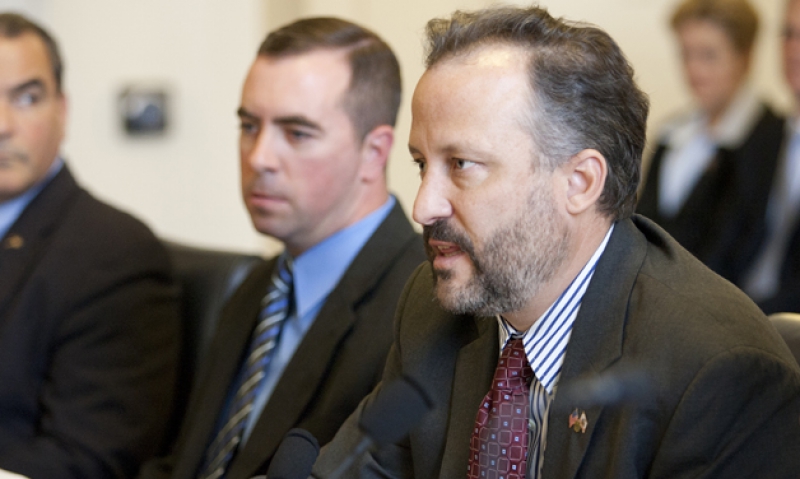
The Legion and other veterans service organizations share how the VA could and should save money during a congressional hearing on Nov. 15.
Last April, the legislative directors of five veterans service organizations, including The American Legion, sent a co-signed letter to Rep. Jeff Miller, R-Fla., chairman of the House Committee on Veterans Affairs. It was in response to his call for input about fiscal waste within the Department of Veterans Affairs (VA) and how, in the VSOs’ views, VA could and should save money. The six-page answer expressed concerns by the VSOs about the growth of VA’s central office and Veterans Integrated Service Network activities and personnel pools.
The award of bonuses to VA’s senior executive service employees – in light of questions about management performance – was another concern expressed in the VSO letter to Miller, as were the VA’s record management practices, the cost of shuttling claims paperwork among offices, and the regular and expensive use of authorized overtime to meet increased workload demands, among other things.
Inspired by the letter, a House Veterans Affairs Committee hearing on the VSOs’ appeals for VA frugality was convened on Nov. 15. The Legion’s Deputy Legislative Director, Ian de Planque, was among those addressing the panel of congressmen.
In his opening remarks, Miller praised the veterans service organizations for their answer to his call for VA cost-saving suggestions. "The VSO response was outstanding," he said. "They provided nine areas for the committee to examine, and I am so pleased they are here today to discuss those and other areas of potential savings."
Miller continued, "I believe there are sincere efforts under way – and documented success in several areas already – which show that Secretary Shinseki is serious about VA’s stewardship of taxpayer dollars. Nevertheless, there are many areas that need improvement and continued oversight."
VSO representatives reviewed their concerns while VA officials, including the department’s chief financial officer, responded to questioning by committee members.
Discussion naturally turned to the ongoing work of the "supercommittee" (Joint Select Committee on Deficit Reduction) whose deadline for action is looming. If the supercommittee fails to reach agreement on the deficit-control goals it has been charged with achieving by Nov. 23, the terms of last summer’s Budget Control Act require sequestration. This action would initiate automatic, across-the-board reductions in federal agency budgets.
Although language in the federal budget agreement seems to shield VA programs from sequestration (though clarification is still needed from the Office of Management and Budget), the Legion’s de Planque said that is not entirely true. In remarks that, in his words, "raised a few eyebrows around the room," de Planque pointed to a major concern of the Legion.
"Some may think that VA programs are protected against cuts in case of sequestration. Not so," de Planque said. "That is because DoL (Department of Labor) and HUD (Department of Housing and Urban Development) are not immune to sequestration. Since VA’s homeless and employment programs are dependent upon DoL and HUD, they are actually in danger if the supercommittee deadlocks. This is a point that we, the Legion, have been making on the Hill for quite some time."
After the hearing, de Planque expressed appreciation for the challenges faced by the VA in cost containment, while taking into account the need for improvements in its management.
"As was pointed out, the system was at 82 percent capacity 10 years ago and now they’re at 120-something percent," de Planque said. "They are straining, and it’s only going to get worse as we slash the number of men and women in the armed forces and put them in a VA system that is already overcrowded. Even though they’re delivering great care and benefits, that’s certainly a concern."
de Planque said the key words from the hearing were accountability and partnership. "We need to make sure that we maintain an open dialogue. We need to look at these issues not as a chance to finger point or blame, but to actually start a dialogue and, together, create the best system of benefits for our veterans.
"Take the issue of possibly unearned bonuses for senior executives, for instance. That’s not just a VA practice. That’s something that happens throughout government and needs to be looked at broadly."
During the hearing, the subject of partnership among the VA, Congress and veterans service organizations had been introduced by de Planque. His remarks caught the ear of Rep. Tim Walz, D-Minn., who said, "I thank Ian for his remarks. I thought his idea of partnership was so good, I wrote it down."
- Legislative

